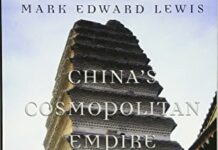
Ebook Info
- Published: 1999
- Number of pages: 552 pages
- Format: PDF
- File Size: 4.75 MB
- Authors: Mark Edward Lewis
Description
Traces the evolving uses of writing to command assent and authority in early China, an evolution that culminated in the establishment of a textual canon as the basis of imperial authority.
User’s Reviews
Editorial Reviews: Review “This book is a masterful study of the ideology and uses of writing in early China. The scholarship is impeccable―indeed, stunning―the interpretation of an array of difficult texts is brilliant, and the conclusions are of central importance to all subsequent studies of this period. This book, in my opinion, is the single most valuable study in the field of early China scholarship since Angus Graham’s Disputers of the Tao. It is certain to be read, cited, and disputed for many decades.” ― Stephen W. Durrant, author of the The Cloudy Mirror“Writing and Authority in Early China is a comprehensive presentation about the structure of society and authority in pre-imperial and early imperial China from a very important and heretofore unexplored perspective. I would not be surprised to see this book rise to a level of lasting importance that few modern works of scholarship, even good ones, can hope for.” ― William G. Boltz, University of Washington About the Author Mark Edward Lewis is University Lecturer in Chinese Studies at the University of Cambridge. He is the author of Sanctioned Violence in Early China, also published by SUNY Press.
Reviews from Amazon users which were colected at the time this book was published on the website:
⭐This is the second of Dr. Lewis’s books that I have read, and the pattern is the same, insightful, deeply scholarly work that gives rise to new lines of research, new ways of viewing the material. He has a Chinese flavor to his work, with many citations from the relevant classics interwoven in the text. As others have pointed out, this is a book intended for specialists in early China, those willing to take the time and effort to pursue the subject in depth. The sections on my area of specialization, the Yi Jing, added to my knowledge of the subject and pointed out small treasures I had never seen before.
⭐I had Classical Thought in East Asia as an undergrad. This book is truly the most awful textbook I’ve ever had to read. And we had to read the whole thing. The one other review for this calls it nearly unreadable. I could not agree more. I barely learned a thing because it is so intense. I was not able to concentrate on it because it just went on and on about every single detail. I’m not a poor reader. I’m not a poor student. I’m not unable to understand dense scholarly writings and books. This book was just awful. On the upside it’s incredibly thorough (obviously) and well researched. If this is your area or specialty, go for it. Otherwise, walk away.
⭐This is a very well-researched, scholarly work. It is also incredibly dense to the point of being unreadable. If you’re a graduate student in Chinese Lit or Lang (or going to be one), it’s probably worth the investment. If you’re not, this isn’t the book for you.
Keywords
Free Download Writing and Authority in Early China (SUNY series in Chinese Philosophy and Culture) in PDF format
Writing and Authority in Early China (SUNY series in Chinese Philosophy and Culture) PDF Free Download
Download Writing and Authority in Early China (SUNY series in Chinese Philosophy and Culture) 1999 PDF Free
Writing and Authority in Early China (SUNY series in Chinese Philosophy and Culture) 1999 PDF Free Download
Download Writing and Authority in Early China (SUNY series in Chinese Philosophy and Culture) PDF
Free Download Ebook Writing and Authority in Early China (SUNY series in Chinese Philosophy and Culture)

